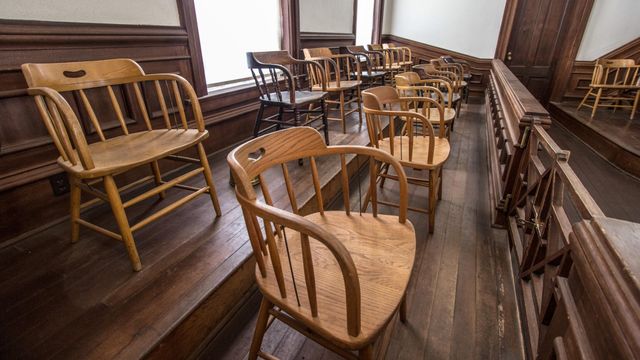Jury misconduct questions are disturbing, attorney says
Juror misconduct in the lengthy retrial of Jason Young won't necessarily mean a mistrial, a Raleigh attorney said Wednesday, a day after the judge in the high-profile murder case called for an investigation into whether a juror violated his orders during deliberations.
Posted — Updated"Right now, all it is is something that's raised some alarms and suspicions and deserves some investigation," said Raleigh defense attorney and former Wake County prosecutor Karl Knudsen, who has no connection to the Young case. "What the investigation ultimately reveals will ultimately determine if it's something that could affect the outcome of the trial."
Young, 37, was found guilty of first-degree murder Monday, more than five years after his pregnant wife Michelle Young's beating death inside their Raleigh home. He was arrested in December 2009 and originally went to trial last summer, but a jury deadlocked on a verdict.
Superior Court Judge Donald Stephens on Tuesday asked the State Bureau of Investigation to look into a Facebook post in which the user said a juror was talking about the progress of deliberations to someone who wasn't on the jury.
Throughout the trial, Stephens ordered jurors not to talk about the case to anyone and to avoid all outside information and discussions about it.
"We don’t know what the truth is, but the reports are disturbing," Knudsen said. "That somebody would be communicating during deliberations and revealing what was going on in the process would be strictly forbidden and would be a crime if somebody else tried to do it."
"The integrity of the court system is more important than any person, any case or any verdict," he wrote.
Stephens also sent a letter to jurors asking them to cooperate in the investigation.
"Do not be alarmed," he wrote to the juror forewoman. "This is not an entirely unusual event. Social media gossip postings frequently make unsubstantiated and unfounded hearsay claims such as these."
Three jurors, who spoke about the case Tuesday, said they find the misconduct claim hard to believe, because they took their job seriously and that cellphones were always turned off in the jury room.
Even if the claim were true and a juror engaged in misconduct, Knudsen said, it wouldn't necessarily mean a third trial for Young.
"Before they do anything that would upset the result of the second of two very long and emotionally draining and expensive cases, they are going to make certain they know exactly what happened or what didn’t happen," Knudsen said.
"If it went beyond just commenting about it and if that juror engaged in conversations with that other person that in any way affected deliberations, then that’s misconduct and could ultimately lead to a mistrial," he added.
Stephens did have to dismiss two jurors during jury selection for talking about the case.
One man, who could be charged with contempt, reportedly was overheard discussing it at a restaurant. Another man was removed for posting comments about serving on the jury on a North Carolina State University message board.
With the advent of social media and more access to technology, the issue of juror misconduct is something courts across the country are having to deal with.
In December, a murder case in Arkansas was thrown out because a juror had been tweeting during the trial, and a Florida juror was held in contempt of court because he friended a defendant on Facebook, the newspaper reported.
• Credits
Copyright 2024 by Capitol Broadcasting Company. All rights reserved. This material may not be published, broadcast, rewritten or redistributed.





